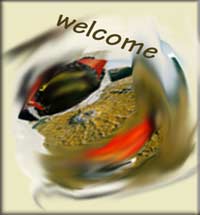Alternative Economics. Economic Alternatives to Growth Dreams, Economic Meltdown Nightmares. Best Downturn Strategy to Survive Recession.
![]()
![]()
![]()
![]()
![]()
![]()
![]()
![]()
![]()
![]()
![]()
![]()
![]()
![]()
![]()
WELCOME
THE IDEA EMPORIUM
FULL MENU
explorations on ...
ANIMAL RIGHTS,
AN INNER VOICE,
GAMBLING IMPULSE,
STUPID OPINIONS,
RELIGIOUS RAGE,
GOOD THINKING,
and more ...
animals and ethics -
animal sacrifice
vs animal love
New!
Paranormal Proof
Warnings of Danger
Sept 2009
Feed the Bears?!
bears starving
Sept 2009
What's Narcissism?
and what's wrong with it?
Sept 2009
Fatal Flaw in
Economics of Growth
Aug 2009 MORE ALL
Hard Lessons About
Islamic History
August 2009
Deceptive Advertising
and Islam
July 2009
Conservative America
bad thinking
June 2009
The Ultimate Reality
are all religions equal?
Mar 2009
The Brain Game
Manifesto
good thinking,
great thrills
Mar 2009
Collective Guilt &
Political Correctness
past horrors,
current baggage
Feb 2009 MORE ALL
MORE ...
plus
Lots of Thinking!
A Celebration
of Thinking
Mar 2009
Western Tolerance,
Islamic Intolerance
Muslim outrage, Western
blindness - seen through
my curious eyes
Jan 2008 INTRO
MORE ...
or
MORE DETAIL
Imagination -
Hope and Horror
not just make believe
Dec 2008 MORE ALL
Open Secret on
Surviving Recession
Nov 2008 ALL
Bush, McCain,
Palin -
Armed &
Dangerous
Oct 2008 MORE ALL
Paranormal
or Para-nutty?
proof of life after death
or wishful thinking
Sept 2008 MORE ALL
Political Correctness
and Fundamentalism
Jan 2008 MORE ALL
Autism, Vaccines -
and Parents
May 2007 MORE ALL
Gambling -
Great? Gruesome?
May 2007 MORE ALL
How To Think -
Tip Number One:
Ask This One Question
Apr 2007 MORE ALL
Walls in the Mind,
They Cripple and Bind
inner walls,
invisible from within,
frustrating for outsiders
Jan 2007 MORE ALL
Don't Keep it Simple -
Keep it Alive
mental challenge -
the thrill of a lifetime
Dec 2006 MORE ALL
Animals and Ethics
a childhood NO to a god
Dec 2006 MORE ALL
Whose Dog Is It?
pets, ownership, slavery
Dec 2006 MORE ALL
The Rottweiler Pope,
The Danish Cartoon
and Muslim Moderates
the pope's remarks -
help or hindrance?
Sept 2006 MORE ALL
Mirror, Mirror,
Who is that Horror?
on the rage of the
righteous when coming
across mirrors
Sept 2006 MORE ALL
A Dangerous
Temptation -
Counter-Prejudice
the lure of hating back
Sept 2006 MORE ALL
Bush the "Righteous"
illusions, delusions, lies
Sept 2006 MORE ALL
The Pope Speaks
outraged Muslims protest,
kill nun, demand apology
Sept 2006 MORE ALL
Give Peace a Chance
by giving empathy
a chance
An Open Letter to
All People, and
for now, especially
all Muslims -
Feb/Aug 2006 MORE
The Rage
of the"Righteous"
on Muslim outrage
at a Danish cartoon
Feb/July 2006 MORE
This
Is Not Me
but it's a tempting
disguise due to the
"righteous"
MORE
Stupid
Opinions
stupid opinion #1
all opinions are equal
Aug 06 MORE ALL
logical fallacy
opinion #2
you are where
you are supposed to be
Aug 06 MORE ALL
Collective Sense of Guilt
Crazy Not Thinking
past horrors,
current baggage
Feb 09 ALL
Breaking
the Spell
of Irrational Opinions
rule #1 - don't start by
calling it a stupid opinion
Aug 06 MORE ALL
stupid opinion #3
everything happens
for a reason
stupid opinion #4
everyone always did
the best they could
stupid
opinion #5
we shouldn't
be judgmental
stupid
opinion #6
all religions are
basically the same
stupid
opinion #7
all cultures are equal
MoreIdea Emporium?
why? what?
plus exploration of the
definition of "idea"
em-po-ri-um
exploration of
the word
emporium
innerwear that dares
innerwear for those
who dare -
The Idea Emporium
About
ALTERNATIVE ALTERNATIVE ALTERNATIVE ALTERNATIVE ECONOMIC
ECONOMICS:
A PERMANENT
DOWNTURN
STRATEGY
ECONOMICS:
SUSTAINABLE GROWTH
MAY NOT BE THE ANSWER
ECONOMICS:
SURVIVE A RECESSION,
THRIVE WITH A
PERMANENT
DOWNTURN
STRATEGY
ECONOMICS NEEDED
ALTERNATVES NEEDED
- more -
possibly
coming soon
ALTERNATIVE
ECONOMICS:
A PERMANENT
DOWNTURN
STRATEGY
ALTERNATIVE
ECONOMICS:
SUSTAINABLE GROWTH
MAY NOT BE THE ANSWER
ALTERNATIVE
ECONOMICS:
SURVIVE A RECESSION,
THRIVE WITH A
PERMANENT
DOWNTURN
STRATEGY
ALTERNATIVE
ECONOMICS NEEDED
ECONOMIC
ALTERNATVES NEEDED
![]()
![]()
![]()
![]()
![]()
![]()
![]()
![]()
![]()
![]()
![]()
![]()
![]()
![]()
![]()
WE NEED: GROWTH, GROWTH, GROWTH!
WE NEED: GROWTH, GROWTH, GROWTH!
Not when it comes to cancer. Not when it comes to weeds. Not when it comes to garbage heaps. So why is growth supposed to be such a good thing when it comes to things like GNP and GDP?
The bigger question: is it a good thing - or not?
The Limits of a Growth-Driven Economy -
A FATAL FLAW!
John Nash - someone I admire. For 150 years, economic theory had followed the winner-takes-all/all-others-lose model. He came along and saw the fatal flaw: everyone loses with the winner-takes-the-prize model. (See the movie, A Beautiful Mind.)
I'm no economist. But I've always known something is rotten with the GROWTH IS NEEDED economic model.
What is it? It's a vicious cycle, with more goods needing more consuming needing more working to pay for more goods needing more goods needing more producing needing more consuming needing more working to pay for the more goods needing more production needing more consuming ...
And that's not all that's wrong: the garbage dumps are overflowing with debris. The planet becomes a huge junk dump for all the things we no longer want because we want and have other things soon to be replaced by still other things we need to work more to pay for so we can own other things that we won't want for long because we will desire other things which we will need to work more hours to pay for so we can consume more to add to the massive junk piles ever growing.
Longer and longer hours? That's what I see all around me. People working maybe 20 more hours per week than 20 years ago. Most also own way more: bigger homes, more clothes, more things. More consumption: more holidays, more more more.
It's like rats on a treadmill. No stop.
Unless we find a way off.
****
One model is readily available on the internet: you are to earn masses and masses, so you'll have plenty
of time to enjoy your wealthy lifestyle of a huge house on the beach, etc, etc. The universe has plenty, so just reach out and create a cash machine through some easy internet cash creation machine.
There are books like The 4-Hour Work Week. I can understand. Too many of us are caught in the hundred hour work week.
****
I got caught myself, for the first time in my life, the past few years. Long story - and not one driven by wanting ever more. Instead, it's another common story: only wanting as much as one can afford, nothing excessive given a certain level of earnings. Then things changed. Two choices: give up stuff, or earn more. In our case, we chose to keep - and to earn money from what we had. That has meant building a business.
We get to choices, as things become better financially. We could start upping our expenses. Or we can keep them relatively low - and buy ourselves time.
A choice I've been making: to buy time. This year I'm not working (for pay) to concentrate on this site. In a way, it's going back to how I've lived much of my life: below my means, if I choose to work full time.
****
Instead of people living like rats on a treadmill - the current Western economic model of economic prosperity - what model would I propose?
Alternative economics: if I consume less, why in the world would I want to keep on working long hours to pay for things I was not buying?
The other way around: if I'm not working the long hours way too many people need to work to pay the bills, then it makes sense to run up fewer bills.
The goal: growth toward a more fulfilling life.
My personal goal: stirring inner magic, releasing inner riches.
Instead of that, way too many are chasing money to pay for the things they have and don't have much time for.
Having things is fine - but how can 40 t-shirts make me more happy than 8 t-shirts? How can a flatscreen tv make me happier than a non-flatscreen? How can a newer car make me happier? What do those things give me?
I know how a reliable car can make me happier than an unreliable one. I know how a warm coat can make me happier than one that doesn't quite do the job. And I recognize that we want new things, different things. A new coat is fun.
But there has been such a lack of moderation. Closets have to get bigger and bigger to store the clutter.
So I see that good economic goals are toward a balanced lowering of production and consumption of things. At the same time there's one of the truest forms of sustainable growth: an increase in things that deeply satisfy - both in their production and consumption.
****
The writing I'm doing is "bottom up" - from the point of view of individuals in the system. This alternative economics would certainly also have a huge impact on "top down" policies. Those policies would need to come from the vision that long-term growth is not a goal. There would be change and development.
But growth? Growth in thoughtfulness, playfulness, empathy, enjoyment. Sure. But not eternal- things growth. Or we get to my image: cancer, growth gone destructive.
****
We have a society where people blame so many things on poverty - especially crime and violence. But there have been many societies with huge amounts of poverty - and little crime and violence. What was different? Mindset.
Time to work more on mindset, as well as continuing to address need - like the need for adequate housing, food, health care, education, etc, if these are missing. But if these are available, and people degrade the environment, come to school despising it without having tried it, and so on - then a considerable part of the problem is elsewhere.
I remember Oprah explaining why she put 40 million dollars into a school in South Africa instead of in the United States. She wanted to give where her gift would be deeply appreciated. She had spoken in many American inner city schools, in order to try to motivate the students. She herself had been driven to achieve. They were driven to want more things.
The problem: mindset.
****
I know, by the way, that I'm not the only one with ideas like this. I remember titles like Recipe for a Small Planet. And I've heard slogans like, Less is More. Also I know that there are millions who bike when they could drive, have their homes a bit cooler in winter, warmer in summer - lots of little cutbacks for less energy consumption and lower expenses.
In other words, they want sustainable growth, an alternative economics. Many want a permanent downturn strategy, not just to survive a recession but to thrive in recession.
****
What's different between what I'm saying and those? Maybe nothing.
I do know what's at the core of what I'm saying:
The old economic model, in which we need growth, sucks. In other nicer words, it does not work.
****
Of course the situation is different in areas with massive consumption and the huge areas with enormous poverty. Enough food and clothing, health care and education
for all, shelter and safety - those are needed. But even there, the growth model is a temporary one. When enough is reached, one needs to get to balance.
****
Problem area: addiction to having more. A bigger (and often uglier) house. A bigger (and often uglier)
car. (Sorry - I know it's a matter of taste - but I've seen so many massive monsters going up.) More shoes and clothes and furniture and things things things. All those need to be taken care of.
****
I'm thinking of Amsterdam and the area around it. Many beautiful homes - well taken care of, the beauty in the care. I also think of the house of friends, and beside it, similar (but changed) houses. Theirs has not been upscaled. Beautiful and comfortable. Beside it, the others are gutted, enlarged and "colded" - the current style. Massive amounts are being spent.
Sure, go ahead.
The big question: Is it making anyone happier? So much energy, money, time poured into these things.
What for?
If it brings greater joy, good. Then the increased production makes sense. But if all it does is have people doing more rat treadmill time, what for? It's lose-lose, instead of win-win.
****
So, my recipe for an alternative economics in a nutshell:
Before adding to your consumption level ask: is this going to get more joy, pleasure, contentment, mental stimulation into my life? Or is it just going to demand that I have to work long hours? Even if I don't have to work long hours (say, if there's piles of money lying around), will this bring greater happiness, insight, into my life?
****
At an even deeper level, ask: what do I most need to be living up to my potential, to be living a life that deeply suits me? If that is the goal, and the long hours are part of my pleasure, great. But if the long hours are in the way - time to look at consumption levels.
****
What if it take the long hours just to stay afloat? Nothing like excess. In fact, not enough no matter how hard you work?
This is the situation in much of the world.
In that case, what I'm talking about is a solution to another problem - not your problem.
You need another solution.
So, I am not saying my solution fits all problems. You do not tell an anorexic to cut down on eating. But if someone is obese, it's a good idea. In short, this is not a one-solution-fits-all.
****
In fact, many people caught up in the thing-thing might be a lot happier if they put some energy into getting greater balance in the world. And some of us do things, like buy fair trade coffee, fair trade bananas whenever we get the chance - so that our ease is not purchased at the expense of someone living in dreadful poverty. (I know that the fair trade thing is only a drop in that bucket. I can't cover everything - crazy to even try to do that.)
****
Can I say what I'm after in a nutshell?
*
balance in our production and consumption, rather than ever-escalating consumption;
* focusing first on finding what we most deeply want - so we don't consume addictively while ignoring our deepest needs.
signed,
Elsa
August 9, 2009
copyright © Elsa Schieder 2009, 2011 - all rights reserved
For the start of this vision of economic alternatives,
of alternative economics,
click here.
To go from alternative economics
to seeing patterns that most people don't see,
click here.
****
More on ... why subscribe?
inner magic released
from stuck in a bottle
to developing your potential
creative development, living fully
***SOCIALIZEIT***
more ...
Alternative Economics.
Economic Alternatives to Growth Dreams,
Economic Meltdown Nightmares.
Best Downturn Strategy to Survive Recession.
![]()
AALTERNATIVE ECONOMICS * MODELS FOR ECONOMIC ALTERNATIVES *
NEEDED: ECONOMIC DOWNTURN MANAGEMENT, * BUSINESS DOWNTURN MANAGEMENT *
WANTED: FINANCIAL DOWNTURN MANAGEMENT *
ALTERNATIVE ECONOMCS * MODELS OF ECONOMIC ALTERNATIVES *
FEAR: GLOBAL DOWNTURN * MARKETING DOWNTURN * GLOBAL ECONOMIC MELTDOWN *
FEAR: NOT JUST GLOBAL DOWNTURN BUT GLOBAL ECONOMIC RECESSION AND MELTDOWN *
ALTERNATIVE ECONOMICS * ECONOMIC ALTERNATIVES :
BAD ECONOMY AS OPPORTUNITY TO REVISE GROWTH THEORY
AND TO REVISIT THEORIES OF SSTAINABLE GROWTH
ALTERNATIVE ECONOMICS* ECONOMIC ALTERNATIVES*
FROM GROWTH DREAMS TO
USING RECESSION EFFECTS FOR MANAGING DOWNTURN
ALTERN ATIVE ECONOMICS:
ENLISTING HUMAN HOPES FOR
LIVING UP TO OUR POTENTIAL
AS A WAY OF MANAGING DOWNTURN, SURVIVING ECONOMIC HARDSHIPS
![]()
Alternative Economics.
Economic Alternatives to Growth Dreams,
Economic Meltdown Nightmares.
Best Downturn Strategy to Survive Recession.
The Idea Emporium with Alternative Economics:
Alternative Economics vs Economic Meltdown Nightmares
Alternative economics. We need alternatives in many areas of our lives.
This past century much of the Western world has been exploring religious alternatives, lifestyle alternatives, career alternatives, and so on.
An alternative to seeing animals as ours to lord over
is gaIning ground in the animal rights movement
Needed: alternative economics, economic alternatives.
These don't push aside the need for a decent standard of living for all -
which includes animal species as well as us humans.
But alternative economics - as far as I can make out, anyway -
does mean pushing aside the growth driven economics.
Elsa
August 13, 2009
copyright © Elsa Schieder 2009, 2011 - all rights reserved
![]()
ALATERNATIVE ECONOMICS FOR
- SURVIVING THE DOWNTURN *
-
MANAGING A DOWNTURN *
- MANAGING
GLOBAL ECONOMIC DOWNTURNOR EVEN MELTDOWN *
DOWNTURN IMPACT OF
BAD ECONOMY?
CAN ONE TURN TO ALTERNATIVE ECONOMICS?
WHAT ABOUT GROWTH THEORY
WHAT ARE
RECESSION EFFECTS?
WHAT TO DO WITH
RECESSION FEARS?
ALTERNATIVE ECONOMICS, ECONOMIC ALTERNATIVES
TO SURVIVE A RECESSION AND REACH SUSTAINABLE GROWTH LEADING TO
GROWING NON-GROWTH
BEST TO AVOID A GLOBAL ECONOMIC MELTDOWN
BUT ...
FOR ALTERNATIVE ECONOMICS, SHIFT FROM GROWTH DREAMS
PREPARE FOR ECONOMIC DEPRESSION?
SURVIVE AN ECONOMIC DEPRESSION?
ECONOMIC DEPRESSION WHAT TO DO?
IN THE LONG TERM, DEVELOP ALTERNATIVE ECONOMIC, ECONOMIC ALTERNATIVES
![]()


***NAVBAR***
Elsa's Adventures in Internet Land
______________________________________________________________
home about site map privacy policy terms of use contact
______________________________________________________________
design, site construction
- Elsa Schieder
copyright © Elsa Schieder, 2006-2015 - all rights reserved
copyright © elsas-word-story-image-idea-music-emporium.com, 2006-2015 -
all rights reserved
CLICK
HERE TO CONTACT
Elsa
______________________________________________________________


